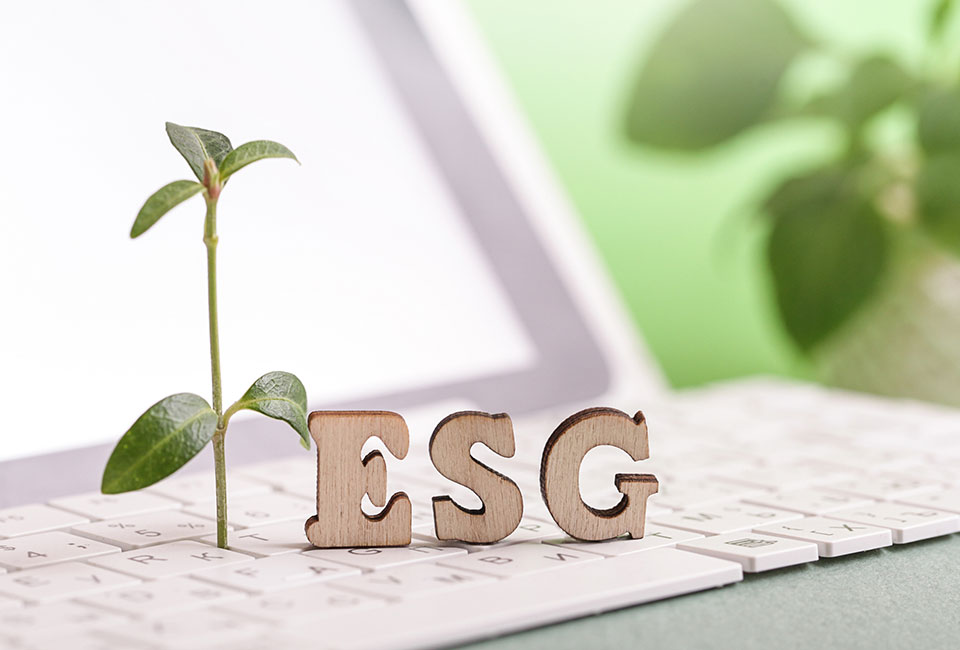
Anyone who wants to invest sustainably is confronted with difficulties. Many products are expensive and their impact is difficult to assess. The classification of sustainable investments is not uniformly regulated. This entails various risks.
Many investors want to invest sustainably and the 'ESG' concept is intended to guide them to do so. It classifies how sustainably companies operate in the areas of environment, social, and governance (ESG). Financial service providers have been placing such ESG products on the market for some time. However, the ratings of the products, the concept behind them and the promises made with them are subject to criticism. Moneyland.ch has analyzed the most common risks associated with ESG products.
There is no uniform ESG rating
How sustainably a company operates is measured by the ESG criteria. However, there is no standard for how sustainability is to be assessed and which values belong to it. Accordingly, it is difficult for financial service providers to assess which companies deserve a high ESG rating and which do not. So, depending on where the rating comes from, there can be differences between ratings. Critics of ESG see this as evidence that these ratings are almost arbitrary in their current form.
ESG does not promote sustainability
Another criticism is that so-called ESG products may feel good, but in fact do not bring any improvements. In extreme cases, a company sells the controversial business, but the associated negative effects on the environment and society remain, simply with another company. It is also questioned whether it is sustainable when companies compensate for negative effects with environmental certificates. The pressure from investors could also lead to the privatization of controversial areas of the business. As a result, the market would have even less influence on this business than before.
ESG lags in rating
Some ESG product providers argue that ESG ratings also help avoid the risk of being caught up in an environmental or social scandal, for a company classified as sustainable. Critics argue however, that ESG ratings often do not reflect such risks up front - only when problems arise that lower the rating. For example, Facebook was considered a sustainable company from an ESG perspective before the data scandal broke in 2018, according to moneyland.ch. However, it is of little use to investors if the risk is only considered for the rating when it is already too late.
ESG does not bring higher returnsProviders of ESG products advertise that a higher rating goes hand in hand with better performance. However, critics question whether there is really a causal relationship here. In the past, for example, they say a particularly large number of tech companies received good ratings because ESG placed a lot of emphasis on fossil fuels - an aspect on which Silicon Valley tended to do well. Thus, because tech stocks have experienced a boom for years, any tech portfolio tends to look better compared to the overall market. Therefore, if an ESG portfolio contains a particularly large number of tech stocks, it is riding the same wave. This however does not prove that sustainability has anything to do with it, according to the critics. On the other hand, there are no studies that show that a company whose ESG rating has risen has subsequently become more profitable.
ESG is advertising
Another major point of criticism is advertising. Companies could use sustainability to improve their reputation both with the public and investors. That is why it is in the interest of companies to achieve a good ESG rating. However, this does not necessarily mean that the company has to be truly sustainable, according to the tenor. It just needs to understand how the rating is assigned. For example, companies would tend to get a higher ESG rating if they published more data about themselves, whether that data attested sustainability or not. Large companies would receive higher ratings on average - if only because they could afford to play the game. Critics see this as a sign that ESG is primarily an advertising tool for companies, rather than saying something specific about a company's sustainability.
ESG is money-making
ESG funds are often more expensive than conventional products. Providers usually justify this by saying that additional effort is needed to find the right stocks for the portfolio as part of the ESG analysis. But this does not change the fact that some ESG products hardly differ from conventional ones, critics say. Many Swiss equity funds touted as sustainable, for example, would consist mainly of Swiss heavyweights Nestlé, Roche and Novartis - just like the Swiss Performance Index, which tracks the entire Swiss market without any sustainability focus at all. For critics, this is a clear sign that ESG is simply about making money. Because of the high demand for sustainable products, financial services providers could sell ESG products more expensively, even if they were virtually indistinguishable from conventional products and offered little other added value.
At Liberty Green, many things are different
At Liberty Green, we are sustainable, transparent and affordable. With 0.00% - 0.38% all-in fee, we offer the lowest fees in the Swiss market. Our experts will be happy to provide information on how we deal with the above risks. A contact is without obligation.